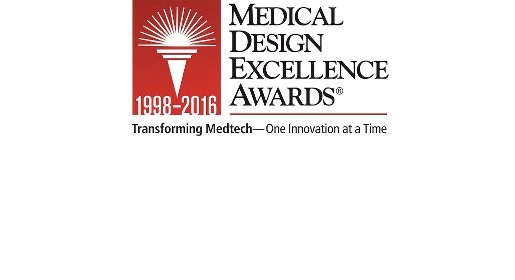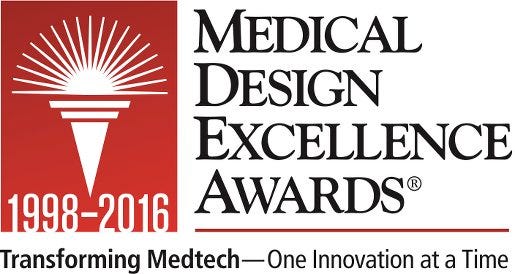Many of the characteristics that make a medical device worthy of distinction in the Medical Design Excellence Awards can also make it a hit in the market.
May 6, 2016

Many of the characteristics that make a medical device worthy of distinction in the Medical Design Excellence Awards can also make it a hit in the market.
Jamie Hartford

One of my favorite parts of our annual Medical Design Excellence Awards (MDEA) program--besides the glitzy awards ceremony where designers of the most innovative products in medtech get to stand in the spotlight--is the jurors' weekend we hold each February. That's when we bring an esteemed group of designers, engineers, and clinicians together to debate the merits of all the entries and separate the wheat from the chaff.
It's fascinating to hear how jurors with different specialties and backgrounds weigh different product attributes, and I always come away with a few new insights as to what makes a top-notch medical device.
Here are a few takeaways from this year's MDEA program.
Learn the secrets of award-winning medical design June 14 at the MD&M East conference in New York City. |
Incremental Innovation Isn't Enough
Healthcare reform has dramatically altered the way hospitals purchase medical devices, and I've heard time and again from providers that adding a few bells and whistles and repackaging a product as the latest-greatest thing simply doesn't cut it anymore. That mindset was also apparent among this year's MDEA jurors. In the past, the panel has awarded prizes to devices that maybe didn't quite break the mold but did significantly alter it. This year, though, that argument was a lot harder to make.
Comments from jurors that a device was an "extension of existing technology," an "incremental improvement," or--worst of all--"not very innovative" were a death knell for product entries. In order to rise to the top in the MDEA competition (or even take hold in the marketplace, for that matter), medical technologies have to be truly game-changing.
Clinical Benefit Is Imperative
While differentiation is important, it's not enough for a technology to simply be novel; medical devices today also have to show a clear clinical benefit and and support it with data.
A number of products in this year's competition ended up on the chopping block because the jurors could find no discernable impact on patient outcomes. Others hinted at a clinical benefit but didn't provide enough evidence to back up their claims.
"At the end of the day, it's all about outcomes and better patient care," explained MDEA juror Craig Scherer, who will speak on a panel about medtech design trends at the upcoming MD&M East conference on June 14, 2016. All the marketing in the world can't compensate for a lack of hard numbers to prove your product's worth.
Price It Right
One of the most important pieces of information contained in an MDEA entrant's submission is the suggested retail price of their product. I have seen this seemingly small bit of information make or break a potential winner.
While anyone can create a disruptive device given an unlimited budget, device makers' real challenge today is churning out technologies that stand up to the cost-benefit analysis. You may not be able to reinvent the wheel, but you can set your sights on making a lower cost version that offers better value for your customers.
Usability is Paramount
In the days and weeks before the MDEA jurors' weekend, our mailroom begins to fill with packages sent by entrants hoping to sway the panel with a live demonstration of their device. Indeed, the presence of a physical product can sometimes tip the scales in an entrant's favor, but I've also seen it go horribly wrong.
This year, it happened with an over-the-counter device that sounded great on paper but didn't hold up in the fourth dimension. The jurors who demo-ed the device--which shall remain nameless--were met with a painful shock. It was good for a laugh after a long day of reviewing products but definitely not worthy of an award.
Jamie Hartford is MD+DI's editor-in-chief and serves as director of medical content for UBM Americas. Reach her at [email protected].
You May Also Like


